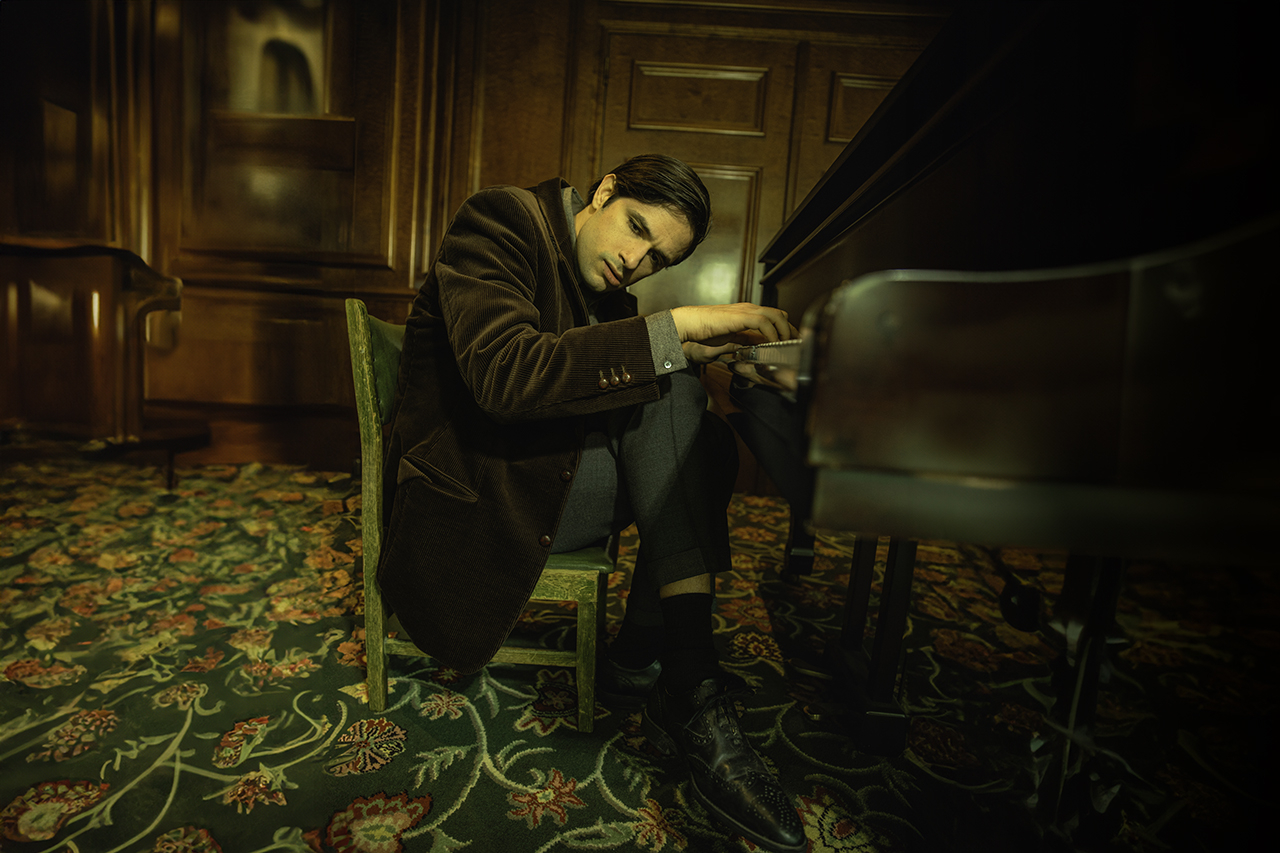Contact
ADDRESS
STAVROS NIARCHOS FOUNDATION
CULTURAL CENTER
364 Syggrou Avenue, Kallithea
TEL.
Box Office:
+30 213 0885700
Box Office email:
boxoffice@nationalopera.gr
Daily 09.00-21.00
info@nationalopera.gr
Register to our Newsletter


Translated by:
Vassilis Tomanas
Theatre adaptation, stage director:
Ektoras Lygizos
Music consultant, vocal coaching:
Kharálampos Goyós
Set designer:
Myrto Lambrou
Costume designer:
Alkisti Mamali
Choreographies, collaboration in movement:
Dimitris Mytilineos
Lighting designer:
Dimitris Kasimatis
Make-up and hairstyle design:
Ioanna Lygizou
Sound design
Brian Coon
Wertheimer: Aris Balis
Glenn Gould: Yiannis Niarros
Hotelier: Amalia Moutousi
Narrator: Ektoras Lygizos
Ticket prices: €15, €20
Students, children: €10
Music theatre • Greek premiere
Greek National Opera Alternative Stage
Stavros Niarchos Foundation Cultural Center
Starts at: 20.30 (Sunday: 19.30) | 
With English surtitles

Alternative Stage founding donor

Alternative Stage sponsor: PPC (Public Power Company)
The music theatre production The Loser, based on the novel of the same title by distinguished Austrian author Thomas Bernhard, will debut on the GNO Alternative Stage, at the SNFCC on 11 April and run for eleven performances until 26 April 2024. The work brings to life a fictional story about one of the greatest pianists of the 20th century, Glenn Gould, adapted and directed by the always artistically restless director, actor, and filmmaker Ektoras Lygizos.
Written in 1983 in the author’s well-known serpentine style, the novel Der Untergeher marked the German-speaking literature of the second half of the 20th century. The theatrical adaptation, based on Vassilis Tomanas’ translation, transforms the monologic narration of the original into a music-theatre piece for four voices and piano.
The legendary Canadian pianist Glenn Gould and two Austrian former classmates of his who went through life as failed pianists, Bach’s Goldberg Variations, the foyer of an abandoned hotel in Central Europe, and its owner, all compose a peculiar “oral musical” about genius, obsession and frustration.
The performance features a cast of distinguished actors: Aris Balis performs as the “failed” Wertheimer, Yiannis Niarros as Glenn Gould, Amalia Moutousi as the hotelier, and Ektoras Lygizos as the narrator.
A middle-aged man enters an abandoned hotel…
… somewhere in the Austrian countryside. A few days earlier, he had received a telegraph notifying him that his friend, Wertheimer, had abandoned his nearby country house and had committed suicide. Waiting for the hotelier to show up, the anonymous narrator is overwhelmed by thoughts, as he recalls facts and conversations from his significant friendship with Wertheimer and Glenn Gould, one of the greatest pianists of the 20th century. Twenty-eight years before that, while the three of them were still aspiring pianist virtuosos, they attended a series of classes led by the famous Russian pianist Vladimir Horowitz. The narrator and Wertheimer’s encounter with Gould was overpowering. Listening to him play Bach’s Goldberg Variations in a class, the piece that made him rise to fame, they decide to give up the piano. The narrator begins working on a treatise about Glenn Gould, constantly tearing it up and rewriting it. Wertheimer, on the other hand, kept notes for an essay titled The Loser for decades. This nickname was given to him by Gould at the start of their acquaintance. Now, almost a year after the death of (the fictional) Gould at the age of 51 from heart attack while playing Goldberg Variations, and just a few days after Wertheimer’s suicide, the narrator, haunted by the presence of his deceased classmates, will meet the hotelier and former lover of Wertheimer. She will recount to him the last days of his friend before his suicide.
On the complex canvas…
… of this fictional friendship between a legendary Canadian clavichordist (as he called himself) and two embittered Austrians who lived their lives as failed pianists, Bernhard writes in his well-known erratic style a short novel that serves as a vitriolic treatise on envy, ambition, fame, genius, perfectionism, obsession, and frustration. Through stories of despair accompanied by an endlessly caustic humor and a deep affection for all his wounded heroes, the author seems to build the entire story around the repetitive, circular structure of the Goldberg Variations (whih consist of a short music theme and its thirty variations), portraying the characters’ egocentricity, obssessive ideas, compulsions, and fixation on their unsurpassable dead ends in a tormenting yet delightful manner. Yet, at the same time, he doesn’t neglect to relentlessly criticise the moral decay of post-war Austria which, decades after the fall of Nazism and still imbued with cynicism and cruelty, continued to operate by the law of the absolute winner and desperate losers.
The place where the production is set…
… like in the novel’s narrative present, is the foyer of an abandoned hotel in Central Europe, where, the anonymous narrator unravels his repetitive thoughts while his two dead friends are constantly present around him like ghosts, reproducing conversations, aphorisms and events of their common past. This fictional condition co-exists alongside the realistic portrayal of the narrator’s encounter and conversations with the hotelier, while the actor playing Gould constantly perfroms excerpts from the Goldberg Variations.
The key element of the production…
… is the constant interplay between spoken dialogue and music: in this context, the piano is reminiscent of the musical accompaniment of a dance lesson, while Bach's motifs intertwine with the spoken words, highlighting their musical qualities. However, making use of Gould’s famous habit of humming the notes while playing the piano, the actors use this occasional humming as an extra musical line in the productions’ overall score, which moves in the intermediate space between prose and music theatre, thus composing a peculiar “oral musical”.
Kharálampos Goyós is the music consultant of the production. The set was designed by Myrto Lambrou, the costumes by Alkistis Mamali, the lighting by Dimitris Kasimatis, the make-up and hairstyle by Ioanna Lygizou, and the sound by Brian Coon, while Dimitris Mytilineos is in charge of the movement.
The cast consists of Aris Balis, Yiannis Niarros, Amalia Moutousi, Ektoras Lygizos.
Thomas Bernhard, Der Untergeher, in: ders., Werke 6, 1983 © Suhrkamp Verlag AG, Berlin
The production “THE LOSER” is part of the GNO Alternative Stage’s unit of programming titled “MUSIC THEATRE DAYS”, which falls under the ACT “FESTIVAL EVENTS OF THE GNO ALTERNATIVE STAGE 2024-2025” » (MIS 6002467) with code 2024ΕΠ08570049 (Priority: “Fostering regional social cohesion through the enhancement of mechanisms and infrastructure to support employment, education, health care and socioeconomic inclusion” of the programme “Attica 2021-2027) and is co-financed by the European Regional Development Fund (ERDF) and National Resources.

STAVROS NIARCHOS FOUNDATION
CULTURAL CENTER
364 Syggrou Avenue, Kallithea
Box Office:
+30 213 0885700
Box Office email:
boxoffice@nationalopera.gr
Daily 09.00-21.00
info@nationalopera.gr